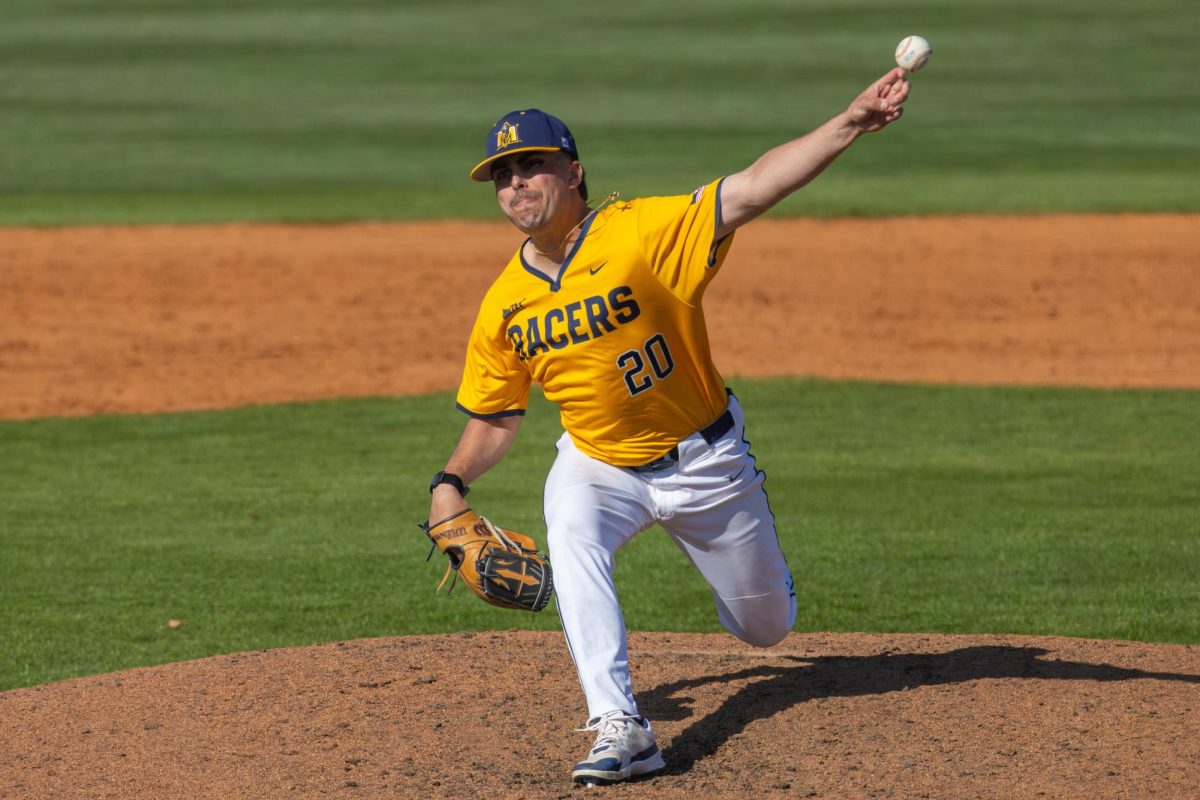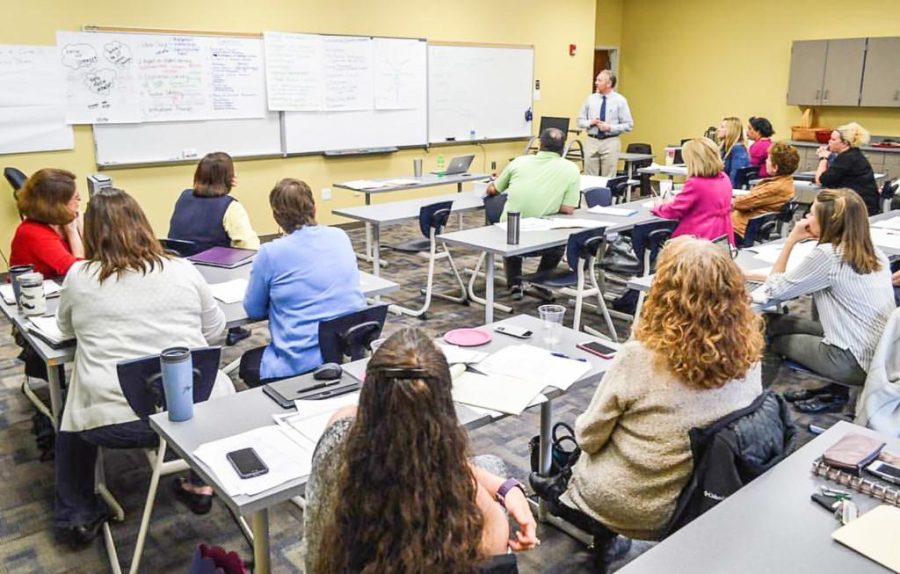Story by Alicia Steele, Assistant News Editor
The College of Education and Human Services compiled a task force of 28 Murray State faculty members to examine and update the current core curriculum of the college.
“The task force is about getting ready to respond to what we see as the coming needs of our teachers that graduate,” said Robert Lyons, COEHS assistant dean. “It’s not a situation where it’s not working.”
Lyons said the college is seeing a change in what is being expected of teachers, so the task force will work to update the core curriculum to match those expectations.
“As part of our self-study we’re beginning to see what some trends are, and we just know that to restructure our competencies to do what we need them to do we have to really look at those classes and how those classes fit together and exactly what’s in the classes,” Lyons said.
He said every eight years the college does a self-study and writes a report for CAEP, the Council for the Accreditation of Educator Preparation, who sends a team to look at the program and interview students, considering the quality, field experiences and content provided, to determine whether or not the program deserves reaccreditation.
“It’s also important because you would not be able to see financial aid without your program being accredited,” Lyons said.
He said it’s too early to say exactly how the curriculum will change, but current discussions are focusing on competency areas, which would run from the beginning of the program until the end.
“For example, the use of technology or addressing diversity within the classroom,” Lyons said. “That’s the type of skill or competency area or the disposition to be a teacher that ought to be from the beginning to the end.”
He said the task force is also interested in introducing clinical experience – student teaching, practicums, observing teachers, tutoring – earlier in the curriculum because research shows that the earlier you can get a student into those experiences, the better.
“The reason for that is it helps shape their understanding of who they are as a teacher,” Lyons said. “It helps them build skills, it helps them understand what we mean in later classes when we talk about a certain strategy of teaching because they more than likely would have seen that in play.”
He said the program currently offers clinical experience early on, but not as many hours as they would like to see because with the current curriculum they don’t have enough hours to give up, considering the clock-hour commitment within a three-credit hour class.
“I believe there is no better way to prepare future teachers than to give them that one-on-one experience within a classroom,” said Veronica Hopwood, junior education major from Louisville, Kentucky. “So, I think that’s awesome.”
She said she hasn’t been in the program long enough to know what changes will be necessary, but she said she strongly believes the college has their future teachers’ best interest at heart.
Though it’s still very early in the process, Lyons said the task force is also considering looking at assessments, instruction and helping students realize their teaching identity.
“We’re going to finalize what the competency areas are that we’re going to measure through the program, and then we’re going to begin to break it down into objectives and assessments,” Lyons said. “Only after we talk about sequencing do we really talk about classes.”
The changes however, would not take effect until Fall 2018.
“Students who are here now would not need to be worried about us changing the program on them,” Lyons said.
Instead, current students would continue with the calendar year curriculum they are working on and only incoming students would follow the new curriculum.





























































































